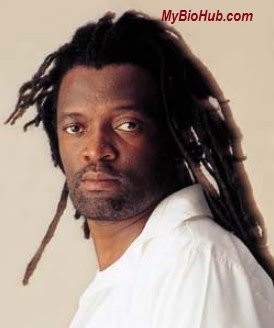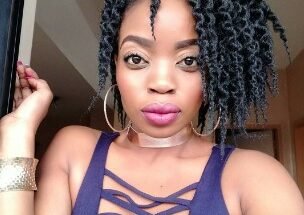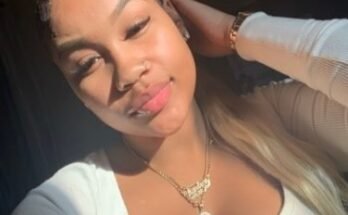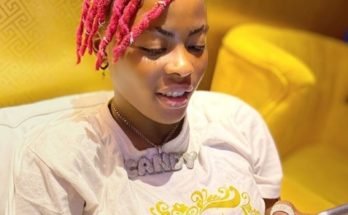Join Our Youtube Channel and Watch Exciting Videos.
If You Love Stories and Facts, Join this Whatsapp Channel
If You Love Stories and Facts, Join this Whatsapp Channel
Lucky Philip Dube born on 3 August, 1964 in Ermelo, formerly of the Eastern Transvaal, now of Mpumalanga. He was a South African reggae musician and Rastafarian. He recorded 22 albums in Zulu, English and Afrikaans in a 25-year period and was South Africa’s biggest-selling reggae artist. Dube was murdered in the Johannesburg suburb of Rosettenville on the evening of 18 October 2007.
His parents separated before his birth and he was raised by his mother who named him Lucky because she considered his birth fortunate after a number of failed pregnancies. Along with his two siblings, Thandi and Patrick, he spent much of his childhood with his grandmother, Sarah, while his mother relocated to work. In a 1999 interview, he described his grandmother as “his greatest love” who “multiplied many things to bring up this responsible individual that I am today.”
As a child Dube worked as a gardener but, as he matured, realizing that he wasn’t earning enough to feed his family, he began to attend school. There he joined a choir and, with some friends, formed his first musical ensemble, called The Skyway Band. While at school he discovered the Rastafari movement. At the age of 18 Dube joined his cousin’s band, The Love Brothers, playing Zulu pop music known as mbaqanga whilst funding his lifestyle by working for Hole and Cooke as a security guard at the car auctions in Midrand. The band signed with Teal Record Company, under Richard Siluma (Teal was later incorporated into Gallo Record Company). Though Dube was still at school, the band recorded material in Johannesburg during his school holidays. The resultant album was released under the name Lucky Dube and the Supersoul. The second album was released soon afterwards, and this time Dube wrote some of the lyrics in addition to singing. It was around this same time when he began to learn English.
On the release of his fifth Kikuyu album, Dave Segal (who became Dube’s sound engineer) encouraged him to drop the “Supersoul” element of the name. All subsequent albums were recorded as Dube. At this time he began to note fans were responding positively to some reggae songs he played during live concerts. Him and Peter Tosh felt the socio-political messages associated with Jamaican reggae were relevant to a South African audience in an institutionally racist society.
Dube drew inspiration from Jimmy Cliff. He decided to try the new musical genre and in 1984, released the mini album Rastas Never Die. The record sold poorly – around 4000 units – in comparison to the 30,000 units his mbaqanga records would sell. Keen to suppress anti-apartheid activism, the apartheid regime banned the album in 1985, because of its critical lyrics, for instance in the song “War and Crime”. However, he was not discouraged and continued to perform the reggae tracks live and wrote and produced a second reggae album. Think About The Children (1985). It achieved platinum sales status and established Lucky as a popular reggae artist in South Africa, in addition to attracting attention outside his homeland.
Dube continued to release commercially successful albums. In 1989 he won four OKTV Awards for Prisoner, won another for Captured Live the following year and yet another two for House of Exile the year after. His 1993 album, Victims sold over one million copies worldwide. In 1995 he earned a worldwide recording contract with Motown. His album Trinity was the first release on Tabu Records after Motown’s acquisition of the label.
In 1996 he released a compilation album, Serious Reggae Business, which led to him being named the “Best Selling African Recording Artist” at the World Music Awards and the “International Artist of the Year” at the Ghana Music Awards. His next three albums each won South African Music Awards. His most recent album, Respect, earned a European release through a deal with Warner Music. Lucky toured internationally, sharing stages with artists such as Sinéad O’Connor, Peter Gabriel and Sting. He appeared at the 1991 Reggae Sunsplash and the 2005 Live 8 event in Johannesburg.
In addition to performing music Dube was a sometime actor, appearing in the feature films Voice in the Dark, Getting Lucky and Lucky Strikes Back.
Lucky is considered to be especially remarkable as a Dub Artist due to his lack of a diasporic cultural base. This was particularly due to the nature of Reggae and Dub being a platform for expression of displacement from the homeland. In Prisoner, the South African artist makes the genre his own by applying themes of apartheid and internal displacement. In the song and music video, he is found disturbing the bounds of the genre by highlighting the toils of his own homeland. He was revolutionary in so far as he introduced a competing version to Reggae’s constant tendency of romanticizing the utopian homeland of Africa.
On 18 October, 2007, shortly after dropping two of his seven children off at their uncle’s house. Dube was driving his Chrysler 300C, which the assailants were after. Police reports suggest he was shot dead by carjackers who did not recognize him and believed that he was Nigerian. Five men were arrested in connection with the murder; three were tried and found guilty on 31 March 2009. Two of the men attempted to escape and were caught. The men were sentenced to life in prison.




